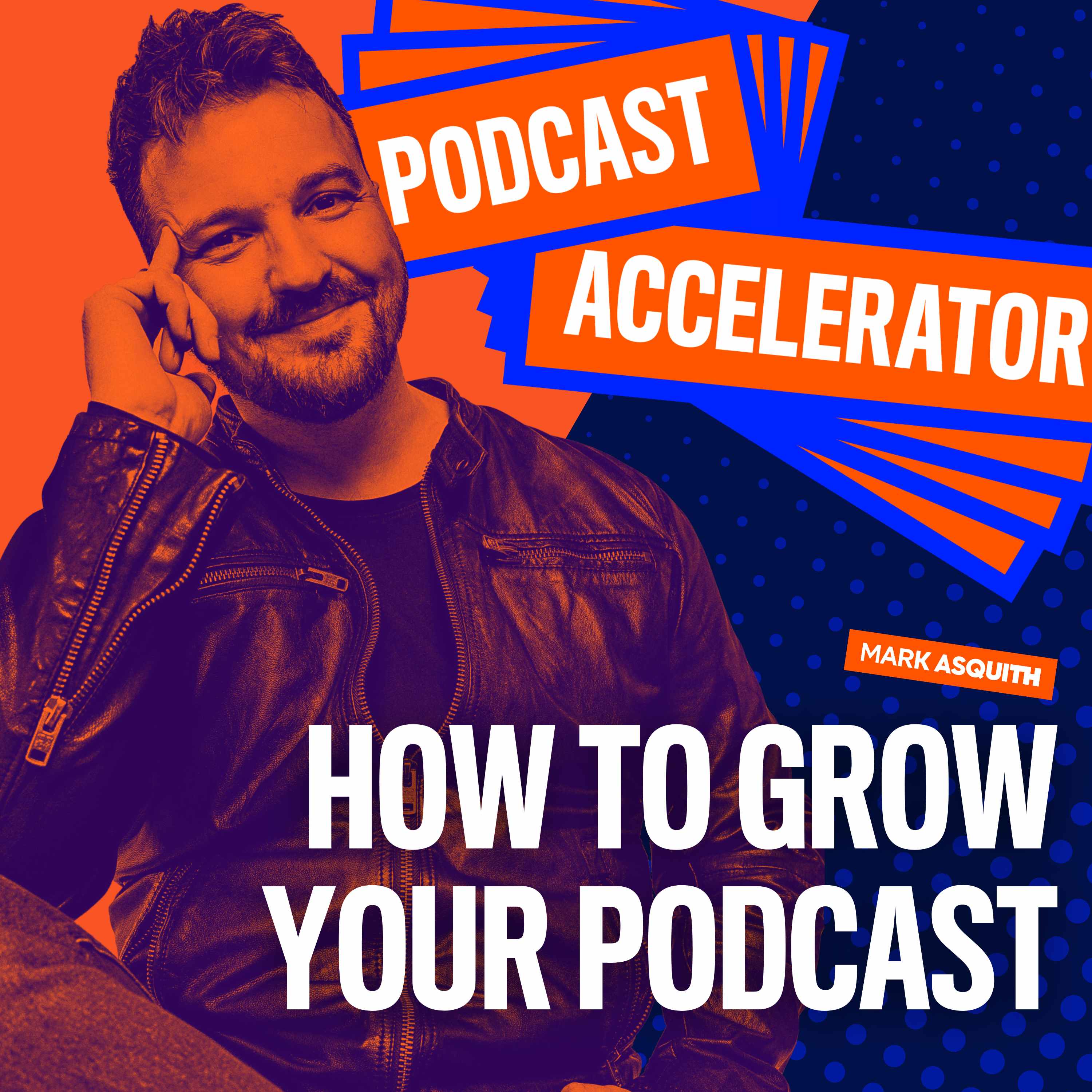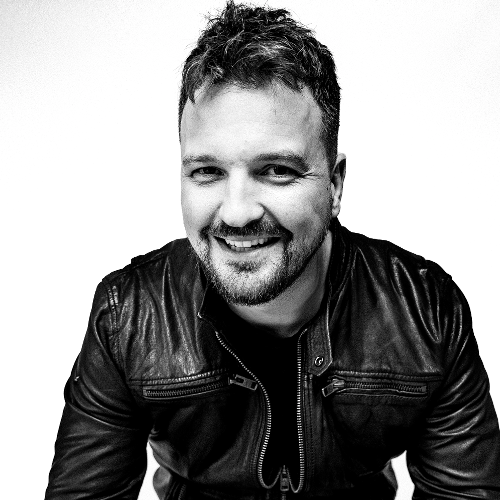3 Signs of a Great Podcast Coach
Last week I spoke to you about the three big "sins" of podcast coaching; the three red flags that you should look out for when hiring or working with a podcast coach.
When it comes to coaching, there are inevitably the very bad ones, but there are also the very good ones, too. After I'd told you my views on how to spot the bad ones last week, Steph Fuccio asked me to do a "good list" - so here it is... my 3 signs of a great podcast coach. Plus a little bonus tip at the end, because "3" sounds better than "4", but I have 4. So...
(If you do need help and can't quite afford a coach, the Captivate Podcast Growth Labs will help if you're a Captivate podcaster, too.)
I used to play a bit in the online business world.
Well, actually, I HAVE an online business. But it's podcasting software-as-a-service (SaaS). What I mean here is that I used to be around people who have online businesses but sell things that are a little less... developmental.
You know the sort of thing: a course, masterminds and of course, coaching.
It's a nice space to live in but it's hard to scale. Look at any online business person who sells those things: the smart ones diversify into other, more sustainable revenue channels and the more, erm, blinkered ones keep trying to "fill the funnel" of new clients OR up-selling to current clients (see last week for more on that and why it can be bad for you).
You know how to spot the red flags in podcast coaching, then, but how do you start to identify a good podcast coach?
1. This is what they DO.
For some online business people, coaching is a way to support their income or bridge a financial gap. It's the lowest hanging fruit when it comes to making money because they already have the saleable knowledge and all they have to do is package that up into something that's clearly positioned, marketed and easily understood.
By creating some content that then positions them as just enough of an expert, popping a lead magnet on their site ("How I Started My Podcast in Just 3 Minutes [My Exact Playbook!]", probably) and warming you up with some emails, they can make some sales.
There's nothing wrong with that - it's how it works, after all.
But as a podcaster, you don't want someone who uses coaching to bolster their revenue and keep themselves afloat enough to do the thing that they really want to do.
No, you need a coach who does coaching for a living. Someone who lives, breathes and loves podcasting and who focuses on maintaining their knowledge and building quality, deep processes for their podcast coaching endeavours.
Ask yourself, would you rather work with a podcasting expert who coaches, or a coaching expert who has decided to coach on podcasting because it's trendy?
Looking for a coach who works with a well-developed client base, can show testimonials from that client base and who is willing to share contact details of a few key clients so that you can verify them is a superb place to start.
If someone is doing anything as a side hustle, they can only dedicate so much time to it. That is ok in a lot of cases, but you need to know that from the outset. Maybe your coach only coaches part-time as they transition from employment to their own business but because of that, maybe they just focus on the launch phase of a podcast and not, for example, the growth phase.
It's really important before you hire someone to ask for those testimonials, get a look at the work they've done and the successes that they've achieved, plus it's vital to gain an understanding of how much they put into a) their coaching business overall and b) each individual client in terms of time and deliverables.
A good podcast coach will be honest with you about how their coaching business fits into their overall working life and what you can expect from them.
A great podcast coach has built demonstrable processes that are part of the expectations orientation and are at the core of your work together.
2. They know what they don't know and make sure that you know, too.
The worst coaches in anything overstretch themselves.
I mentioned last week that for a lot of coaches, it's easier to sell something to you as a current client than it is to sell something to a new client.
It's cheaper, too. There are no CAC (customer acquisition costs) and there are no onboarding processes to do. In fact, if positioned well, an up-sell can simply feel like a continuation of your work together and feel like an organic next step.
The problem arises when podcast coaches overstretch themselves and start selling everything - growth strategies, show notes writing, production, social media management, monetization coaching and so on - so that they can increase your LTV (lifetime value) to them.
As a business methodology, that's fine; as an experience for you, the paying customer, it's usually not so great because those coaches are ok at that stuff - they can sorta do it, but they aren't good at it.
This results in box-checking.
"Am I doing social media?" - check; "Do I have show notes?" - check; "Am I doing something that feels like I'm trying to grow my audience?" - check.
You get the picture. You end up with a litany of things that you simply do as opposed to seeing actual results.
A good podcast coach knows their limits and encourages you to focus on a very specific project with them through to successful, measurable completion. From there, they give you some specific and focussed next steps - either with them (if they have the provable skills to do it) or perhaps with someone else... which leads me to...
3. They tell you when you need extra help, even if it might cost them business.
The worst coaches try to silo you into their ecosystem. Good coaches know their limits and are honest with you about them. Great coaches never, ever "dead-end" you and love to see you thrive, even if it's with other people.
When I was a digital agency owner, I made it a point to never ever "dead-end" someone. That is to say, I never left someone without an answer or clarity on what to do next.
I may not have had the answer, but I went out of my way to either find out or to, better still, find someone that I could refer my clients to who was far better at the next thing or the thing-that-is-adjacent-to-my-thing than I was.
As a coach, it's better to be superb at what you do and to be "t-shaped" - have a broad range of knowledge at the highest level but have a depth of knowledge in one or two key things.
When interviewing a new podcast coach, make it a point to ask them where their knowledge ends and what their network is like for referrals to other experts.
As an example, your coach may be wonderful at podcast launches but never have scaled anything of note. A great coach will be honest with you and tell you that they can refer you to someone else for that part; a poor coach will try to keep you on the hook by saying things like "We can handle that when it comes to it" or "We have the skills in-house to do that".
A tell-tale sign of a really good coach is that they simply don't do that. They aren't an agency, they're a person and they should act as such by saying things like "I" not "we".
It might sound like a silly distinction now, but when you need someone to solve a problem or to take you forward, you need the right person to take you in the right direction, not just someone to make you feel like you're moving forward.
A sign of a great podcast coach is that they're open with their referrals and love to transparently collaborate with people who can fill the gaps in their knowledge to give you a more rounded experience.
Bonus (actually, the MOST important one)
I talked last week about coaches making you feel great and really motivated when you're on a call with them but, as you step back more to look at the results, you begin to see that the numbers just aren't heading in the right direction.
A good podcast coach makes you feel good, but (vitally!) gives you clear, specific actions during each session and (even more vitally) holds you fully accountable for achieving and completing those actions before your next session.
A great podcast coach has spent time working on processes, tools and community that helps you to action your specific tasks and has a contingency plan in place for if you don't.
The best coaches understand your skills, your limits and how far they can take you out of your comfort zone before burning you out; they never, ever "take it easy" on you for not doing what you promised to do.
If you've hired a coach, then you're ostensibly committed to achieving and taking accountability for the work needed to get to where you want to be - you should expect the very best coaches to be tough on you if you let them down.
Not all coaches are created equally.
Coaching is a viable way to make money and, like last week, I'm not bashing all coaches or the good podcast coaches.
What I am trying to do is to help you identify those good ones and to tell them apart from the bad ones, because you shouldn't invest money in something that sucks.
There's some free content here that will help, too.
Your next steps
I teach podcasting a lot, and usually for free. So, here's what I'd recommend you do next:
- Watch my free podcasting tutorials on YouTube: https://www.youtube.com/captivatepodcasting
- Learn how to launch your own podcast the right way, for free (plus a comprehensive download-and-keep crib sheet): https://www.podcastsuccessacademy.com
- Ask me anything at all about podcasting over on Twitter: Mark.Live/Twitter
P.S. you can start engaging with your listeners using AWeber. It's free, no credit card required: Mark.Live/Email
Mentioned in this episode:
Straight-talking podcast growth tutorials for the busy podcaster
Every week I send out 1,000-2,000 words of completely free, tried and tested podcast education. It's totally focussed on helping you to grow and monetise your audience and has become one of the most trusted go-to places for honest podcasting education in the world. It's all free and you can get it below.
This podcast uses the following third-party services for analysis:
OP3 - https://op3.dev/privacy
Podcorn - https://podcorn.com/privacy
Podtrac - https://analytics.podtrac.com/privacy-policy-gdrp





